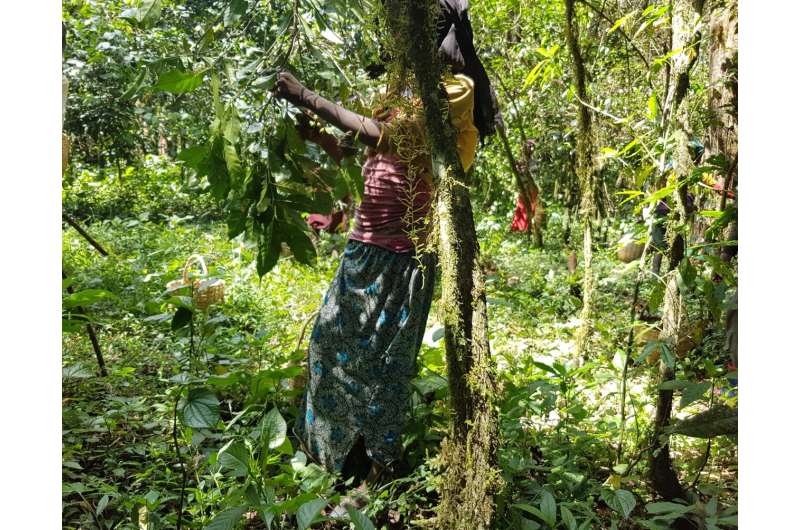Coffee, child labor, and education: Examining a triple social–ecological trade-off in an Afromontane forest landscape

The work with forest preservation in southwestern Ethiopia, where smallholder coffee farmers play an important part, is essential for global sustainability. But there are also negative consequence to the synergy between smallholder cash crop production and biodiversity values.
A new study conducted by researchers from Stockholm University, Norwegian University of Life Scinences, Norwegian Institute of Bioeconomy Research and Addis Ababa Universty published in the International Journal of Educational Development, shows that child labor plays an important role in the system.
“By studying the extent of child labor use in coffee berry picking and guarding of food crops from forest-dwelling mammals in the region, we have gained new insights into the educational consequences of forest cover maintenance and coffee production,” says Tola Gemechu Ango, lead author of the study and researcher at the Deparment of Human Geography at Stockholm University.
A biodiversity hotspot
The forest in southwestern Ethiopia is a biodiversity hotspot of global importance. Here smallholder farmers produce coffee under the shade of trees. Coffee is the main source of cash income for several million people in Ethiopia, and also a primary export commodity for the country. Apart from the economic importance, the shade coffee production system has contributed to preserve forest cover and nurture habitats for forest-dwelling animals.
Studying the connection between the coffee production and forest preservation, researchers have identified negative consequences. According to the study, the economic-environmental desireable synergy using smallholder shade coffee production to preserve the forest cover is burdended by an undesireable reliance on child labor that has negative effects on children’s schooling.
“This study increases our understanding of the compromise between educational, economic and environmental benefits of the forest conservation, and the need to address them to achieve transformation to sustainability in rural settings,” says Tola Gemechu Ango.
Absent from school
The research team studied boys and girls aged five to 17 in poor and wealthy households to see which groups of children participate more frequently in coffee berry picking and crop guarding, and were forced to be absent from school. The results of the study shows that 90 percent of the studied households, especially in the households living under poor conditions, used children in coffee berry picking and food crop guarding.
Half of the children working while attending school were forced to frequently be absent from school to engage in these work tasks, suggesting that child labor and school absenteeism linked to coffee production and crop guarding are widespread problems in the region.
“Our results shows that there is a critical need to align sustainable development goals, in particular goals of biodiversity conservation, climate change mitigation and poverty alleviation with a respect for children’s right to education and personal development,” says Tola Gemechu Ango.
Need to harmonize goals
National and international communities have actively promoted and supported forest conservation in the region to preserve biodiversity and to store carbon to mitigate climate change.
“In view of our results, concerted efforts that include suppport by national and international organizations to alleviate household poverty, to strenghten farmers’ coffee cooperatives and unions, and to develop and implement labor-saving technologies of coffee production might be a strategy to harmonize the various goals of sustainable development in a way that is better in line with the globally recognized human right of every child’s right to education,” says Tola Gemechu Ango.
More information:
Tola Gemechu Ango et al, Coffee, child labour, and education: Examining a triple social–ecological trade-off in an Afromontane forest landscape, International Journal of Educational Development (2022). DOI: 10.1016/j.ijedudev.2022.102681
Citation:
Coffee, child labor, and education: Examining a triple social–ecological trade-off in an Afromontane forest landscape (2022, December 16)
retrieved 17 December 2022
from https://phys.org/news/2022-12-coffee-child-labor-triple-socialecological.html
This document is subject to copyright. Apart from any fair dealing for the purpose of private study or research, no
part may be reproduced without the written permission. The content is provided for information purposes only.
For all the latest Science News Click Here
For the latest news and updates, follow us on Google News.

